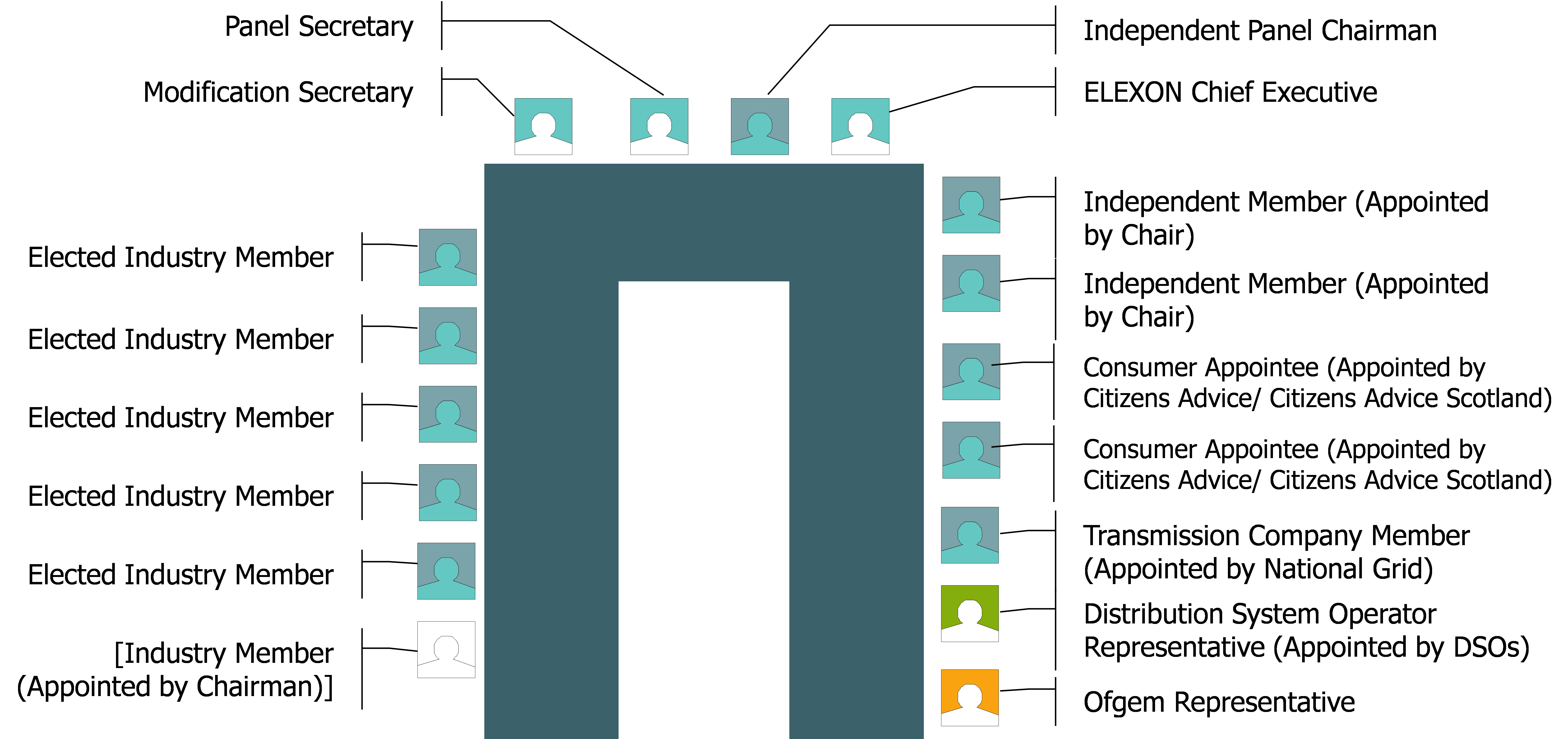BSC insights: The BSC Panel, a template for panel constitution?
This Insight article looks at why the BSC Panel model is frequently cited as one of the better models for ensuring broad representation of stakeholders to feel they are engaged and their views understood within the code panel.
Published: August 2017
View from the Chair
Elexon Board and BSC Panel Chairman Michael Gibbons recently stated at its Annual BSC Meeting and Seminar that he ‘firmly believes the BSC Panel, with a broad, and independent membership is a template for Panel constitution.’
Elexon, often seen as the leading provider of code services, as demonstrated through its own independent customer survey and through Ofgem’s recent cross-code survey, believes there that whilst there is always room for further improvements, there are a number of lessons to be learnt from how the BSC Panel is constituted and operates.
The BSC Panel structure
Below we show what the BSC Panel looks like and highlight the benefits of such a model.
Key beneficial features
- An annual public BSC meeting where anyone, not just BSC Parties, has the opportunity to hear from, and question the BSC Panel and Elexon as the code manager
- All Panel Members are required to act impartially and not as representatives of any organisation/sector. This means that when they vote on changes they are required to explain their reasons as to why changes would make the arrangements better or worse than currently, using ‘Applicable Objectives’ developed by Ofgem
- The Panel has clear objectives set out in the BSC, which includes the need for the Panel (and Elexon) to give effect to the Code ‘without undue discrimination between Parties or classes of Parties’ and also to ensure that ‘there is transparency and openness in the conduct of the business’
- An independent Chair
- Two members appointed by organisations representing consumers (Citizens Advice, however Ofgem has the power to assign to other consumer groups)
- Citizens Advice as the consumer representative also has the ability to bring forward changes
Five industry members, elected by BSC Parties every two years:
- Voting rights for Panel elections are aligned to the concept of ‘Trading Party Group’, this effectively levels the playing field between large and small Parties (so a big ‘Trading Party Group’ gets the same number of votes as a small, non-vertically integrated BSC Party and no Party can dominate voting by having multiple ‘Parties’)
- Results of Panel elections are published on the Elexon website
- Updated Trading Party Groups and their constituent BSC Parties are published monthly on the Elexon website
- The Chair can appoint an additional ‘industry member’ where he feels that a particular area of insight from the industry is missing
- Two members who are independent of BSC Parties are appointed by the Chair, these have historically included individuals who have expertise in policy, economics or governance from academic or (non-energy specific) industry
- A member appointed by the Transmission Company but does not vote on modifications
- A person appointed by Distribution System Operators as their representative but does not vote
- A person appointed by Ofgem as their representative but does not vote
- As the BSC code ‘manager’ Elexon’s Chief Executive attends but does not vote. Elexon also provides an independent Modification Secretary and Panel Secretary
For Modifications overseen by the Panel:
- Elexon, as the independent expert code manager, chairs the majority of any change workgroups
- Although not required to do so, most Panel members do not normally participate in the working groups appointed to assess change, where they do they have abstained from voting on the final changes when returned to the Panel
- Although not required to do so, most Panel members do not vote on changes that have been proposed by their own company
- Proposers of changes can be invited to speak at the Panel when their changes are being considered and the Proposer of a change ‘owns’ their solution


